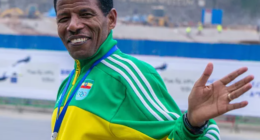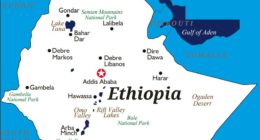
A visa is required by everyone entering Ethiopia. Nevertheless, Visa on Arrival (VOA) for tourists is available to holiday guests from Canada, USA, Brazil, Mexico, South Africa, New Zealand, Australia, Japan, Korea, Israel, China, Russia, the UK and all other European Union nations, at Bole International Airport in Addis Ababa. It cost US$50 for a one-month tourist VOA and US$70 for three months VOA.
Multiple-entry visas should be obtained in advance at an embassy as they are not currently available on arrival. Please note that visitors entering through the land borders are not entitled to VOA visas.
Business Visa
A Business Visa is required for consultants, business travelers and professionals working for NGOs and must be obtained from an Ethiopian Embassy prior to their arrival. If there is no Ethiopian Embassy in your country, or the Embassy is located very far from your residence, you can get the support of the organization you are working for in Ethiopia to provide you with a document issued by the Immigration Authority allowing you to get a one-month single-entry visa on arrival.
An extension of both business and tourist visas can be obtained at the Immigration Authority offices situated in Churchill Road, close to the Post Office in Addis Ababa.
Banking And Money
One of the strongest currencies in Africa is the Ethiopian birr, though it has devalued considerably in recent times. Banknotes are denominated in birr 1, 5, 10, 50, and 100; centime and birr 1 coins are also minted. There are private ‘forex bureaux’ where foreign currency, particularly US dollars, Pounds sterling and Euros, can be changed into birr. They can also be changed at nearly all banks during banking hours which is from 8.30am to 4pm, Monday–Saturday. Also, ATMs are available 24 hours across the country where you can withdraw local currency with international Visa and MasterCard.
Retail Opening Hours
Compared to Europe or North America, opening hours for shops are very flexible in Ethiopia. Most places operate between the hours of 8am and 5pm from Monday–Saturday, but some stay open till as late as 10pm. Also, many others open on Sundays and public holidays.
Power Supply
Electricity is 220 volts at 50 cycles. Power supply in Ethiopia is erratic but the biggest restaurants and hotels serving international visitors usually have generators. Anyway, bringing a torch light isn’t a bad idea as some streets can be dark at night. A torch will also prove useful if you intend to visit remote areas. Although plug standards vary, the commonest sockets are the Type C (European two-pin) and Type L (Italian three-pin).
Telephone
+251 is the code for international dialing and like everywhere else, mobile phones are now more popular than land lines. The ‘Ethio Telecom’ is the only mobile telecom provider in Ethiopia. They sell local SIM cards at affordable prices at their stores across the country. Mobile numbers can be recognized easily because they all begin with ‘09’ and all phone numbers are 10 numerals long.



